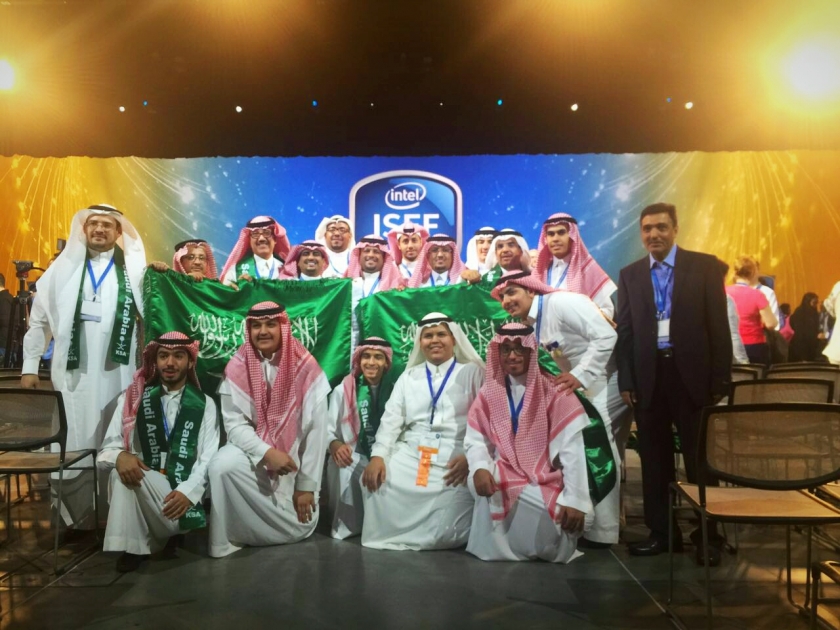
Saudi Arabia wins first among Arab countries at Intel International Science and Engineering Fair
Saudi Arabia wins eight awards at Intel International Science and Engineering Fair – The world’s largest high school science research competition. The winning Saudi projects are in the following categories: Earth and Environmental Sciences, Environmental Engineering, Engineering Mechanics, Mathematics, Materials Science, Plant Sciences and Translational Medical Science.
“We congratulate the winners this year and we hope that their achievements contribute to inspire young inventors to exploit their desire for knowledge and creative skills to resolve the current challenges”, commented Ibrahim Al-Suwaiyel, Corporate Affairs Manager at Intel Saudi. He elaborated, “Where the International Exhibition of Science and Engineering offers a great example of what can be achieved when students from different cultures meet to share ideas and solutions.”
All the finalists from Saudi Arabia showed great promise in harnessing the power of science and innovation to solve problems and create opportunity for our global community, “Intel Saudi Arabia, in collaboration with Mawhiba, first sent students to ISEF in 2007. Since then, the quality of the participants has grown year on year. With the achievements the Saudi team won this year - This demonstrates the Kingdom’s ongoing investment in science, innovation, youth and education” he added.
The 2016 Intel International Science and Engineering Fair featured more than 1,700 young scientists selected from 419 affiliate fairs in 77 countries, regions and territories. In addition to the top winners, approximately 600 finalists received awards and prizes for their innovative research, including 22 “Best of Category” winners, who each received a US$5,000 prize. The Intel Foundation also awarded a US$1,000 grant to each winner’s school and to the affiliated fair they represent.
Grand prize winner for developing microbial fuel cells, received the Gordon E. Moore Award of US$75,000, named in honor of Intel co-founder and fellow scientist.
The Intel International Science and Engineering Fair honors the world’s most promising student scientists, inventors and engineers. Finalists are selected annually from hundreds of affiliated fairs. Their projects are then evaluated onsite by approximately 1,000 judges from nearly every scientific discipline, each with a Ph.D. or the equivalent of six years of related professional experience in one of the scientific disciplines.
The Intel International Science and Engineering Fair 2016 is funded jointly by Intel and the Intel Foundation with additional awards and support from dozens of other corporate, academic, governmental and science-focused organizations. This year, approximately US$4 million was awarded.



























